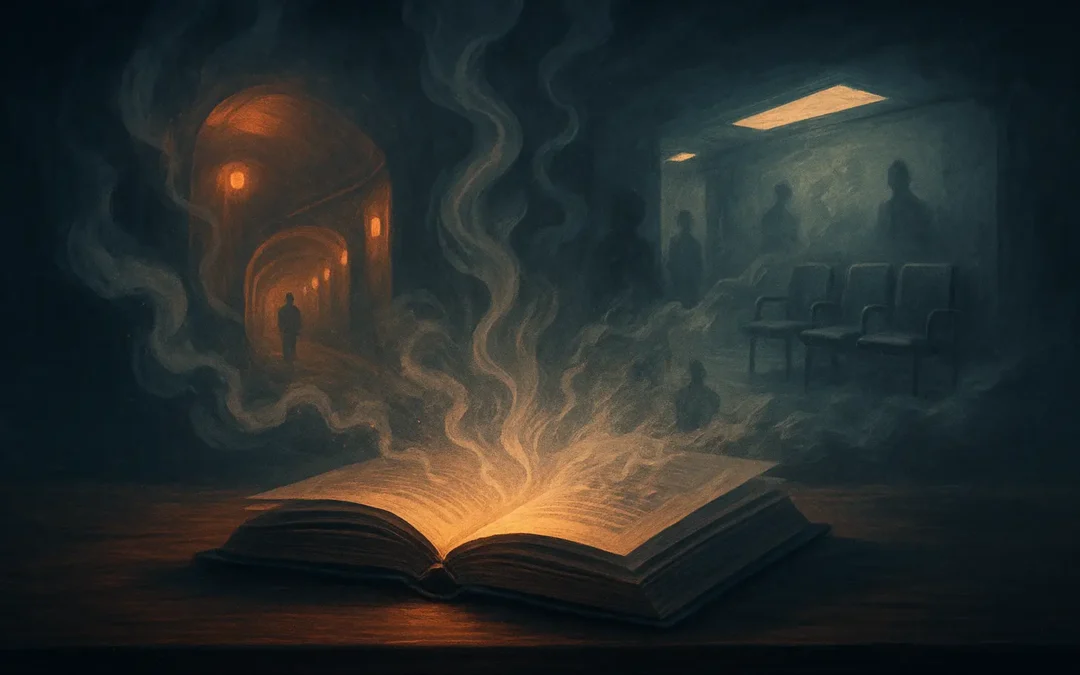Novels About Dreams: When Fiction and Reality Blur
Dreams are strange things. Sometimes they vanish by morning, and sometimes they stay with you for years—unfolding in fragments, whispering through memory, shaping the way you see the world.
Some novels tap into that. They don’t just include dreams—they are shaped by them. They blur the line between the waking world and the subconscious. They make us question what’s real, what’s imagined, and whether there’s even a difference.
If you’ve ever woken from a dream unsure of where you are—or read a book that felt like stepping into one—this list is for you.
1. The Unconsoled by Kazuo Ishiguro
A surreal masterpiece from the Nobel Prize-winning author, The Unconsoled follows a pianist who arrives in an unnamed European city to give a performance, only to find his sense of time and identity collapsing. Conversations repeat with eerie variations. Places shift. Deadlines loom but never arrive. It’s a dreamscape novel that makes no attempt to explain itself—and that’s exactly the point.
2. The Third Policeman by Flann O’Brien
Dark, hilarious, and utterly disorienting, this novel begins with a murder and slowly descends into a philosophical dream-world of eternal roads, obsessed policemen, and metaphysical bicycles. It’s often compared to Kafka, but O’Brien’s voice is distinctly his own—playful, strange, and steeped in Irish absurdity.
3. Slaughterhouse-Five by Kurt Vonnegut
One of the best-known examples of nonlinear time and dreamlike storytelling, this novel follows Billy Pilgrim, a soldier who becomes “unstuck in time.” Blending sci-fi, trauma, and surreal humour, Vonnegut’s book captures the fractured nature of memory, particularly in the wake of war. The dreamlike jumps aren’t just stylistic—they’re a reflection of the character’s psyche.
4. The Book of Disquiet by Fernando Pessoa
Less a novel than a dream journal disguised as prose, this book by Pessoa’s semi-fictional alter ego Bernardo Soares reads like a series of beautifully written fragments. There’s no clear narrative. No dramatic plot. Just the slow unfolding of one man’s internal world—a world where dreams, doubt, and longing ripple through every sentence.
5. Dreams Don’t Always End by Paul M. Newbery
A more recent entry into the realm of dream-influenced fiction, Dreams Don’t Always End explores the blurred line between memory, regret, and imagined futures. The story is sparked by a recurring dream of a car crash that echoes throughout the narrator’s life. As the story unfolds, the reader is drawn into surreal spaces—a corridor that may be circular, a waiting room where different versions of the self appear, and a flat where time seems to stand still.
Rather than offering a single explanation, the book invites reflection. It’s not about escaping reality but encountering it sideways—through dreams, fragments, and moments that feel more real than memory. Perfect for readers who enjoy quiet tension, visual writing, and symbolic settings.
“If you’ve ever questioned which version of yourself made it through… this book lingers.”
6. Kafka on the Shore by Haruki Murakami
Murakami is often called the master of dreamlike fiction, and Kafka on the Shore is one of his most surreal works. The novel shifts between two characters—Kafka Tamura, a teenager on the run, and Nakata, an older man who speaks to cats. The narrative blends reality with myth, memory, and metaphor, creating a reading experience that feels like drifting through someone else’s subconscious.
7. The Raw Shark Texts by Steven Hall
A man wakes up with no memory, only to discover that an abstract, conceptual shark is hunting him through thought itself. Yes, really. This novel is inventive, typographic, and often reads like a lucid dream breaking down mid-sentence. For fans of the metaphysical, it’s a wild, compelling ride.
Why We’re Drawn to Dreamlike Fiction
Stories about dreams resonate not because they offer clarity, but because they don’t. They echo the confusion, wonder, fear, and longing that real dreams give us. They’re personal. Symbolic. Slippery. And often, they tell us more about ourselves than a straightforward narrative ever could.
In a world that often demands logic, dream-novels remind us that not everything makes sense—but that doesn’t make it less true.
Final Thoughts
Whether you’re drawn to surreal humour, philosophical reflection, or emotional depth, there’s something powerful about books that treat dreams as more than filler. These novels offer not just stories—but states of mind.
And if you’re curious to explore a more recent voice in this tradition, Dreams Don’t Always End may be the place to start.
📚 Explore the book → on Amazon Kindle
Let me know what dreamlike novels have stuck with you—and if you’d like more recommendations, be sure to sign up for my newsletter or explore the blog.
